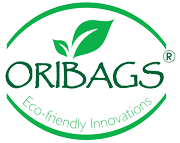In partnership with Private Sector Foundation Uganda (PSFU) and the Government of Uganda, the United Nations Development Programme (UNDP) has facilitated training for Ugandan companies to use a digital tool to discover opportunities to contribute to the Sustainable Development Goals (SDGs) and Uganda’s Nationally Determined Contributions (NDC) to address climate change. This initiative was made possible through an innovative partnership with global tech company, Impacti
ORIBAGS is one of the fast mover companies in Uganda to implemnt use the digital tool to sieze opportunities to contribute to the Sustainable Development Goals(SDGs).ORIBAGS is a fast growing brand for eco-friendly packaging and stationary in Uganda and has a longstanding history of aligning its practices in ways that contribute to the SDGs. Since 2009, ORIBAGS has recovered locally-sourced waste materials to produce recycled packaging and stationary while creating jobs for youth, women and disadvantaged groups.
The Impacti EXPLORE tool offers a quick assessment that guides companies through a three-step process to identify opportunities to contribute to the SDGs suited to their sector and location. The digital tool was customized to feature linkages between NDC and SDG priorities in Uganda, offering the Ugandan business community a tool that explains the SDGs and NDCs in business language and facilitates companies to connect their local actions to address the Ugandan challenges. Upon completion of the EXPLORE assessment, companies then join the online Impacti CONNECT network where they can build up reporting on their SDG/NDC contribution through their Impact Profile and make connections to the latest SDG/NDC opportunities. As the network of SDG-aligned Ugandan companies grows, opportunities can be leveraged to create business partnerships, enhance access to climate finance, and align to the Government of Uganda’s Monitoring, Reporting and Verification (MRV) tool to enhance data collection, monitoring and reporting on climate change targets.
This initiative has been implemented under the NDC Support Programme to support private sector engagement in climate action and sustainable development by enhancing reporting capacity on SDG/NDC contributions
The practical training session, led by Impacti Director of Partnerships and Innovation Ms. Yolanda Saito, guided participants through a five-step process to discover SDG business opportunities and build credible communications on their SDG/NDC business contributions.

The training showed how the digital tool can support Ugandan companies in this step-by-step process. Participants were introduced to tips and features available to first build the business case for SDG/NDC action, then identify SDGs that matter to them, reflect on risks and opportunities along their value chains, set action plans and goals, build collaborations to scale up impact, and communicate their SDG/NDC impact in ways that are compelling to their various audiences. Ms. Saito showed participants how each company can build an SDG Impact Profile within the Impacti CONNECT network and by doing so, connect with ideas, opportunities and partners committed to making impact on similar SDG and NDC priorities. The training highlighted the opportunity offered by the online tool to stay connected and continue to drive business action forward on Uganda’s NDC and SDGs during the COVID-19 period and beyond. A key message was that the SDGs/NDCs offer real business opportunities and partnerships for Ugandan companies looking to open new markets and access financing
Rusia Orikiriza, the Founder and managing Director of ORIBAGS addressed participants and shared their business’ experience of building an SDG Impact Profile with the digital tool. She explained how Impacti digital tools have helped the company better communicate how these actions contribute to the priority SDGs for Oribags Innovations, namely Responsible Consumption and Production (SDG 12), Decent Work (SDG 8), Innovation and Resilient Infrastructure (SDG 9) and Gender Equality (SDG 5). Rusia demonstrated how ORIBAGS has now started to track metrics on their current achievements and explore opportunities to set goals to make even greater SDG/NDC impact in the future.ORIBAGS has been the first Ugandan Company to implement use of the digital tool to support achievement of SDGs.

In addition to the practical training, Deloitte Project Manager for Climate Change Mr. Raymond Caguioa also spoke of financing and business opportunities for the private sector to contribute to NDC/SDG actions. Mr. Caguioa noted that access to finance is fundamental to realize the objectives set by NDCs, as many countries including Uganda continue to face challenges in securing the financial resources needed to achieve NDC targets. Aligning operations to Uganda’s NDC also offers additional business opportunities to the private sector. Resources such as the Impacti digital tool can be used by businesses to enhance understanding on the added value that climate investments bring and start the process of collecting data aligned with clear and agreed NDC reporting frameworks in Uganda.
UNDP Economist Mr. Francis Wasswa also presented key considerations for businesses to recover from COVID-19 and highlighted findings from the recently published COVID-19 socioeconomic impact report. The report, titled “Leaving No One Behind: From the COVID-10 Response to Recovery and Resilience-Building” found that Uganda’s informal sector has been heavily impacted by restrictions enacted in response to the COVID-19 pandemic. SDGs have been impacted across the board, though potential impacts are likely to be most severe for Eliminating Poverty (SDG1), Zero Hunger (SDG2), Good Health and Well-Being (SDG3), Gender Equality (SDG5), and Decent Work and Economic Growth (SDG8). Mr. Wasswa highlighted policy recommendations within the report and reiterated the role that the private sector needs to play in responding to COVID-19 in terms of investing in innovations to support long-term recovery
